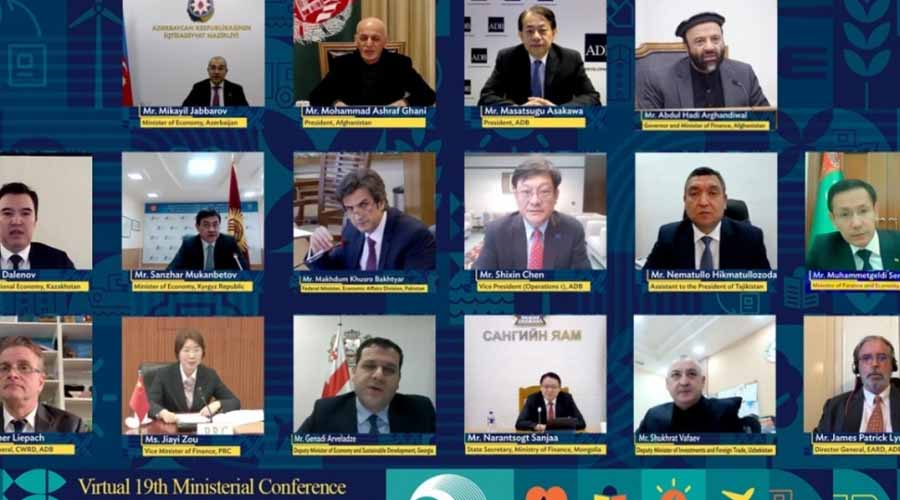Pakistan has suggested transit trade agreements among the member countries of the Central Asia Regional Economic Cooperation (CAREC), leading to a regional free trade agreement (RFTA) to expand regional trade.
On Monday, the 19th ministerial conference of Central Asian Regional Economic Cooperation (CAREC) was held via video link. The conference hosted by Afghanistan was titled “People-Centered Regional Cooperation in Post-Covid Environment”, and co-chaired by Afghan Finance Minister, Abdul Hadi Arghandiwal and Asian Development Bank Vice President Shixin Chen.
Read more: Post-COVID-19, CPEC will become trade hub, says FO
The ministers and representatives of Afghanistan, Azerbaijan, China, Kazakhstan, Kyrgyz Republic, Pakistan, Magnolia, Tajikistan, Turkmenistan, and Uzbekistan addressed the session. Senior representatives of several international and regional organizations also attended the meeting.
Addressing the session, Makhdoom Khusro Bakhtiar, the minister for Economic Affairs suggested the development of tourism corridor, the establishment of CAREC Business Counsel, and increased involvement of the private sector in promoting tourism.
According to the press release of the ministry, the minister highlighted that to expand trade among the CAREC countries, a transit trade agreement among the member countries, leading to RFTA, must be considered.
The minister also pointed out the significance of regional long-term cooperation in achieving the shared goals of sustainable development and economic growth. He emphasized the importance of regional connectivity, not only by roads but also by rail, aviation, and ports to unleash the region’s trade and tourism potential.
The Pakistan minister endorsed the long term CAREC strategies to promote regional tourism and gender mainstreaming. He told the meeting that tourism was part of the national development policy of the government of Pakistan which contained immense untapped potential.
Other participants of the conference stressed that more rapid digitization and leveraging the private sector could support the recovery from the coronavirus pandemic, accelerate regional cooperation, drive innovation and help countries adapt to new and evolving forms of globalization.
Delivering his message to the conference, Afghanistan’s President, Ashraf Ghani appreciated Prime Minister Khan’s recent visit to Kabul. He termed it an important milestone in strengthening bilateral ties and enhancing prospects for regional cooperation and integration.
The ADB President said that “As the world emerges from the pandemic, we must revive our regional cooperation efforts with a spirit of open regionalism to enable CAREC to seize the opportunities for renewed globalization.”
The ministers unanimously endorsed two long-term strategies: a tourism strategy to develop safe and sustainable tourism destinations and provide jobs in CAREC countries and a gender strategy to improve access to economic opportunities for women and empower them in decision-making processes.





















